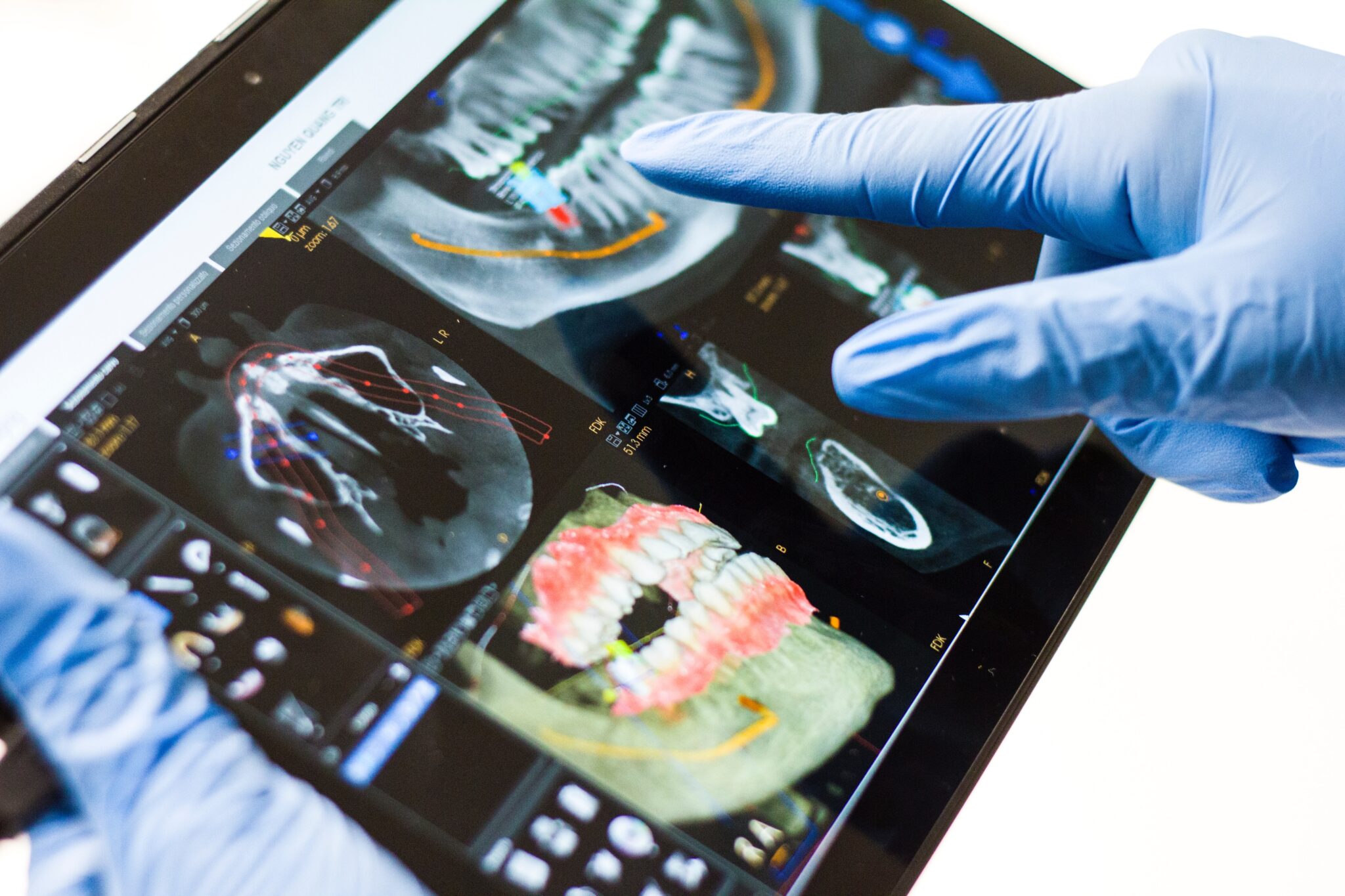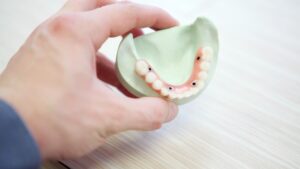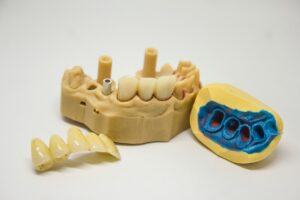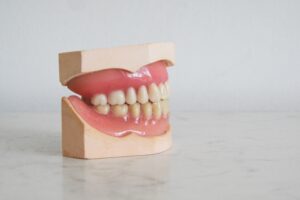Are Dental Implants Permanent? A Comprehensive Guide



Are Dental Implants Permanent? A Comprehensive Guide
Dental implants are a popular solution for those who have lost teeth or are looking for an alternative to dentures. They are designed to be a permanent fixture in your mouth, providing a strong foundation for fixed or removable replacement teeth that are made to match your natural teeth. But are dental implants really permanent? In general, dental implants are designed to be a long-lasting solution for missing teeth. Studies have reported a 90 to 95% success rate of dental implants over a period of 10+ years. However, the lifespan of dental implants can vary depending on a number of factors, including the materials used, the patient’s oral health, and how well they take care of their implants. Key Takeaways:- Dental implants are designed to be a long-lasting solution for missing teeth, with a reported success rate of 90 to 95 percent over a period of 10 years.
- The lifespan of a dental implant can vary depending on a number of factors, including the materials used, the patient’s oral health, and how well they take care of their implants.
- While dental implants are not necessarily permanent, they can provide a long-lasting solution for those looking to replace missing teeth.
Understanding Dental Implants
If you have missing teeth and are looking for a permanent solution, dental implants (artificial tooth root) may be the answer you are seeking. Dental implants are artificial tooth roots that are surgically placed into your jawbone to support a replacement tooth or bridge. They are made of titanium, which is a biocompatible material that fuses with your jawbone and provides a stable foundation for the replacement tooth.Dental Implant Process


Materials Used in Dental Implants
Dental implants are made up of several materials that work together to provide a long-lasting, durable, and natural-looking tooth replacement option. The most commonly used material in dental implants is titanium. Titanium is a biocompatible metal used in medical procedures for decades due to its ability to fuse with bone tissue. The use of titanium in dental implants has been proven to be safe and effective, with a success rate of over 95%. In addition to titanium, other materials used in dental implants include ceramic and various types of alloys. Ceramic implants are a newer option that is gaining popularity due to its tooth-colored appearance and hypoallergenic properties. Ceramic implants are made of zirconia, a material that is strong, durable, and biocompatible. The specific materials used in your dental implant will depend on your individual needs and the preferences of your dentist or periodontist. Your dentist will take into consideration factors such as the location of the missing tooth, the condition of your jawbone, and your overall health when selecting the appropriate materials for your implant. Overall, dental implants are a safe and effective tooth replacement option that can last a lifetime with proper care and maintenance. The materials used in dental implants have been extensively tested and proven to be biocompatible and durable, ensuring that your implant will look and function like a natural tooth for years to come.The Dental Implant Procedure


Treatment Plan
Before the surgery, your periodontist, Dr. Anzalone, will create a treatment plan. This plan will include a comprehensive evaluation of your teeth, gums, and jawbone. He may also take X-rays or CT scans to assess the condition of your jawbone and determine the best placement for the implants.Anesthesia
Dental implant surgery is a surgical procedure that requires anesthesia. Your periodontist may use local anesthesia to numb the area around the implant site. In some cases, sedation or general anesthesia may be used to help you relax or sleep through the procedure.Surgical Procedure
During the surgery, your periodontist will make an incision in your gum tissue to expose the jawbone. Then, they will drill a small hole into the jawbone and insert the implant into the hole. The implant is made of titanium and is designed to fuse with the jawbone over time. Once the implant is in place, your surgeon will close the incision with stitches.Outpatient Surgery
Dental implant surgery is typically an outpatient procedure, which means you can go home the same day. However, you will need someone to drive you home and stay with you for a few hours after the surgery. Overall, the dental implant procedure is a safe and effective way to replace missing teeth. With proper care, dental implants can last a lifetime. If you have any questions or concerns about the procedure, be sure to talk to your periodontist.Benefits of Dental Implants
Dental implants are a popular option for replacing missing teeth. They offer a range of benefits, including:- Permanent: Unlike dentures, dental implants are a permanent solution to missing teeth. They are surgically placed into the jawbone, where they fuse with the bone over time. This creates a strong, stable foundation for replacement teeth that can last a lifetime with proper care.
- Improved chewing: Dental implants function like natural teeth, allowing you to chew and eat your favorite foods without worry. Unlike dentures, which can slip or shift while eating, dental implants stay securely in place.
- Improved appearance: Dental implants are designed to look and feel like natural teeth. They are custom-made to match the color, shape, and size of your existing teeth, creating a seamless, natural-looking smile.
- Improved speech: Missing teeth can affect your ability to speak clearly, causing slurring or mumbling. Dental implants can help improve your speech by restoring the structure and function of your teeth.
- Convenience: Unlike dentures, which require removal and cleaning, dental implants are a permanent part of your mouth. This means you can brush and floss them just like you would your natural teeth.
- Durability: With proper care, dental implants can last a lifetime. They are made from high-quality materials that are designed to withstand the wear and tear of daily use.
Risks and Complications
While dental implants are generally considered safe and effective, like any surgical procedure, they come with risks and potential complications. Here are some of the most common risks and complications associated with dental implants:- Pain and Discomfort: It is common to experience some pain and discomfort after the implant surgery, but it usually subsides within a few days. Your dentist can prescribe pain medication to help manage any discomfort.
- Implant Failure: While the success rate for dental implants is high, there is a small risk of implant failure. Factors that can contribute to implant failure include poor oral hygiene, smoking, and certain medical conditions such as uncontrolled diabetes.
- Bone Loss: If the implant fails to fuse with the jawbone properly, it can lead to bone loss around the implant site. This can weaken the implant and cause it to fail.
- Infection: Infection is a potential risk with any surgical procedure, including dental implant surgery. Your dentist will prescribe antibiotics to help prevent infection, but it is important to follow all post-operative care instructions to minimize the risk of infection.
- Complications: Complications during or after the surgery can occur, such as bleeding, swelling, or nerve damage. Your dentist will take steps to minimize the risk of complications, but it is important to be aware that they can occur.
- Peri-implant Disease/Peri-implantitis: This is a type of gum disease that can occur around the implant site. It can cause the implant to fail if left untreated.
Preparation for Dental Implants
Before getting dental implants, it is important to prepare yourself both physically and mentally. The following are some steps you should take to prepare for the procedure:Evaluate Your Teeth and Jaw
Your periodontist will evaluate your teeth and jaw to determine if you are a good candidate for dental implants. If you have missing teeth, your periodontist may need to remove any damaged existing teeth. They will also evaluate your jawbone to make sure it is thick enough to support dental implants. If your jawbone is too weak, bone grafting might be required.Bone Grafting
If your jawbone is too weak to support dental implants, your periodontist may recommend bone grafting. During this procedure, a small amount of bone is taken from another part of your body, such as your hip, and transplanted to your jawbone. This will help strengthen your jawbone and make it more suitable for dental implants.Sinus Lift
If you need dental implants in your upper jaw, your periodontist may recommend a sinus lift. This procedure involves lifting the sinus membrane to make room for the bone graft. This will help strengthen your jawbone and make it more suitable for dental implants.X-Rays and Impressions
Your periodontist will take x-rays and impressions of your teeth to help plan the placement of your dental implants. This will allow them to determine the best location for the implants and ensure they are placed in the correct position.Practice Proper Oral Hygiene
Practicing proper oral hygiene, brushing at least twice a day and flossing at least once a day, is always essential to good oral health but it’s particularly important to keep the mouth clean prior to dental implant surgery. Dental implant surgery requires a small incision to be made within the gums in order to insert the implant. Keeping the area clean will help prevent infection and promote healing. By following these steps, you can help ensure that you are well-prepared for dental implant surgery.Aftercare and Maintenance
After getting dental implants, it is important to take proper care of them to ensure their longevity. Here are some tips for maintaining good oral hygiene and taking care of your dental implants:- Brush your teeth twice daily with a soft-bristled toothbrush and fluoride toothpaste. Use gentle circular motions to clean around the implant and abutment.
- Floss at least once a day to remove any food particles and plaque buildup. Use a floss threader or interdental brush to clean around the implant and under the crown.
- Maintain regular dental check-ups and cleanings to ensure that your implants are in good condition. Your dentist will examine your implants and perform a professional cleaning to remove any buildup.
- Avoid hard or sticky foods that can damage your implants. Chew on the opposite side of your mouth to prevent putting too much pressure on the implant.
- Quit smoking and limit alcohol consumption as they can increase the risk of implant failure.
- If you experience any pain, swelling, or bleeding around the implant, contact your dentist immediately.
Alternatives to Dental Implants
While dental implants are a popular and effective solution for missing teeth, they may not be the best option for everyone. Here are some alternatives to consider:Traditional Dentures



